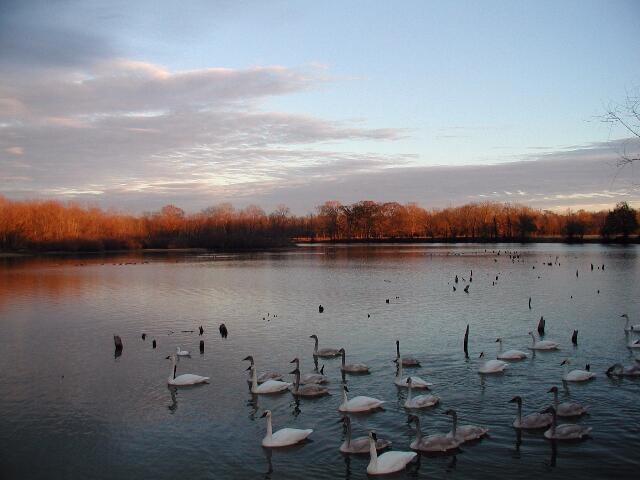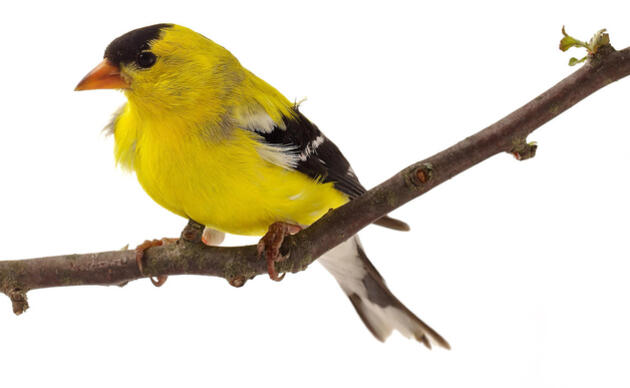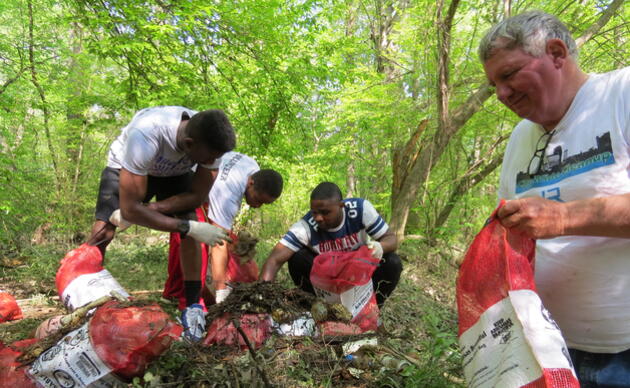
The odd duck of Arkansas’s Important Bird Area (IBA) program harbors beautiful swans. This 60-acre privately owned IBA supports the largest and oldest wintering population of Trumpeter Swans in the South. Upwards of 320 birds per season make this site important for restoring migratory populations of the species. The magnificence and accessibility of these birds has sparked an interest in many people not otherwise considered to be birders.
Site Description:
Magness Lake is a 25-acre oxbow of the Little Red River that is six miles east of Heber Springs. Adjacent to the lake are pastures and bottomland hardwoods. At considerable personal expense, the Eason family helps the swans by feeding them cracked corn, and have helped wildlife watchers by expanding the parking lot and installing signs. Be sure to express your appreciation if you meet them.
Ornithological Summary:
Arkansas is a part of the Trumpeter Swans’ historic wintering range, but the species was extirpated by the early 1900s. In January 1991 three immatures were documented at Magness Lake. Four adults arrived the following winter, and ever since numbers have fluctuated but increased until this has become the largest and most consistent wintering flock of Trumpeters in the southern US. Magness Lake has become an important site for restoring a self-sustaining migratory population. Indeed, numbers have grown so high that in recent years birds have spread out to nearby ponds.
Conservation Issues:
Visitors are welcome while the swans are present (early November to early March; late afternoons are best) but park only in designated areas, be respectful of private property and the birds, and help keep others from trespassing or feeding the birds unhealthy food such as bread. The Arkansas Game and Fish Commission has translocated swans from Iowa to Holla Bend National Wildlife Refuge and Boxley Valley in an attempt to establish additional migratory populations. Time will tell if these efforts are successful. In recent years swans have shown up on their own in various parts of the state, indicating success of Midwest conservation efforts and boding well for reestablishment of migratory swan populations.
How you can help, right now
Be a voice for birds
Join our Advocacy Team to receive action alerts about legislation and policy when Audubon Delta's birds need your voice.
Join Our Flock
Signing up is the best way to keep up with Audubon's latest news, programs and initiatives.




